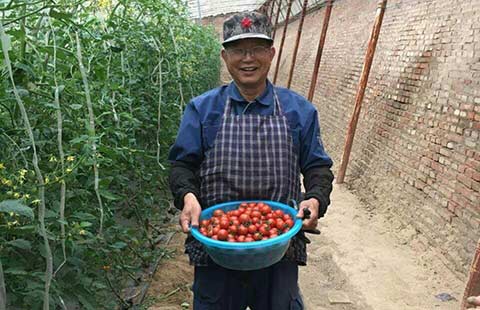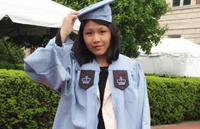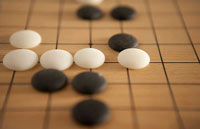Confucianism keeps convicts on the straight and narrow
By Zhang Yi (China Daily) Updated: 2016-07-20 07:45|
Inmates at Yunhe prison leave after a class in the four-story teaching building in the prison compound. In recent years, about 200 inmates have enrolled in the Yunhe Confucius Distance Learning College every year. |
Rehabilitation
According to Liu, the nation has a high number of convicted offenders, which means prisons are crowded and maintaining order can be a challenge. Despite that, the courses in Confucianism remain a cornerstone of the approach to rehabilitation in Yunhe prison.
"Most importantly, our main task is to re-educate the prisoners and place them firmly back on the right track," he said.
In 2008, the college achieved a major breakthrough when it was authorized to act as an exam center for students who are unable to take exams in the normal way. Inmates can take the national "self-taught" exam - for those outside the formal education system - while in prison, and the credits they gain can be used as evidence of a reformed character when the authorities are considering the reduction of their sentence.
In recent years, the success of the Yunhe project has prompted six other rehabilitation centers to offer similar courses. The latest was established at Luzhong prison, in central Shandong, in May.
One of the essential Confucian concepts emphasizes conscientious ethical behavior to cultivate close, loving relationships, especially between families, friends and neighbors, according to Wang Hanyu, a lecturer who has taught Confucian philosophy at a number of corrective centers and prisons in the province.
The practice of educating inmates through moral teaching rather than punishment accord with a resurgence of Confucian thought in modern society.
Wang, who is also deputy secretary-general of the Research Society on Confucius Business Theory in Shandong, believes the Chinese word xiao, which means "filial piety", is an important component of the concept that underpins family relationships.
"The concept is firmly rooted in the minds of every person in China and has been adopted by most households nowadays. It has a huge bearing on every inmate too. It makes it easier for people to empathize with the prisoners, which in turn helps them to return to their families and reintegrate into society when they are released from prison," she said.
Li Xiang (his name has been changed to protect his privacy), an inmate at Yunhe who completed the two-year course in 2012, said he has benefited from the courses. "I've learned the way a person should behave. As the philosopher said, 'Do not do to others what you do not want others to do to you'," he said.
"The words of the Master have taught me how to treat other people and how to be tolerant in daily life. I want to make reparation to those I hurt before and try my best to repay those who have helped me to rebuild my life."
|
A mother with her son at Yunhe prison in September 2011. |
- Li says private investment needs boost
- Ex-minister: Provocations prompted naval drill
- China plans bureau for immigration, report says
- Beijing 'will never' halt island work
- Rain keeps the floods coming
- 8,000 schools in UK to add Chinese math system
- AIDS education project for students passes the test
- Artificial sun kindles prospects for mission to Mars
- Young sex not taboo for children of fishermen; pregnancy poses problems
- Suspected smuggler repatriated from Peru after 18 years












